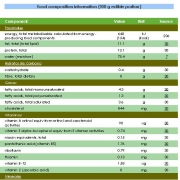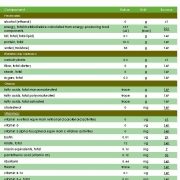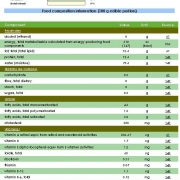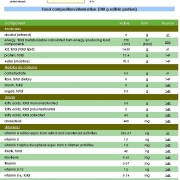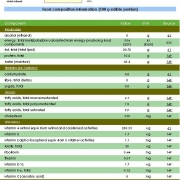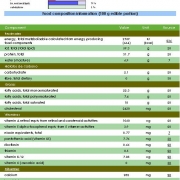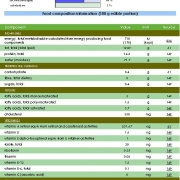NUTRITIVE
The egg is a food of great nutritional value. Its content in proteins, vitamins and minerals, saturated and unsaturated fatty acids, along with other substances that are no less important, has served for organizations related to Nutrition and Health to consider the egg as a recommended food for a varied and balanced diet.
PROTEINS: QUANTITY AND QUALITY
The egg is a food of high protein content of excellent quality. So important is the value of egg proteins, which the World Health Organization has proposed as a reference standard for determining the protein quality of other foods
RICH IN VITAMINS AND MINERALS
Eggs also contain appreciable amounts of vitamins and minerals, highlighting A, D, E and group B. Among the minerals iron, phosphorus, zinc and selenium predominate.
BALANCED IN FATS
The lipid content is 11%, its richness in phospholipids being especially important. A large-sized egg has about 7.5g of total lipids, of which 2g correspond to saturated fatty acids (AGS), 1.1g to polyunsaturated fatty acids (AGPI) and 3g of monounsaturated fatty acids. The AGPI / AGS ratio is 0.55, considered favorable in terms of nutrition. At the same time, the richness in oleic acid (monounsaturated), valued for its favorable effects on health, is noteworthy.
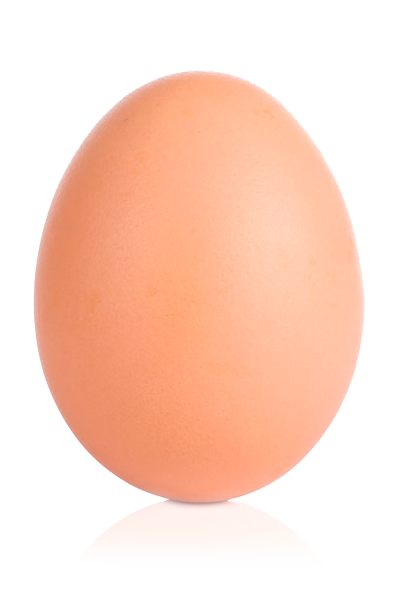
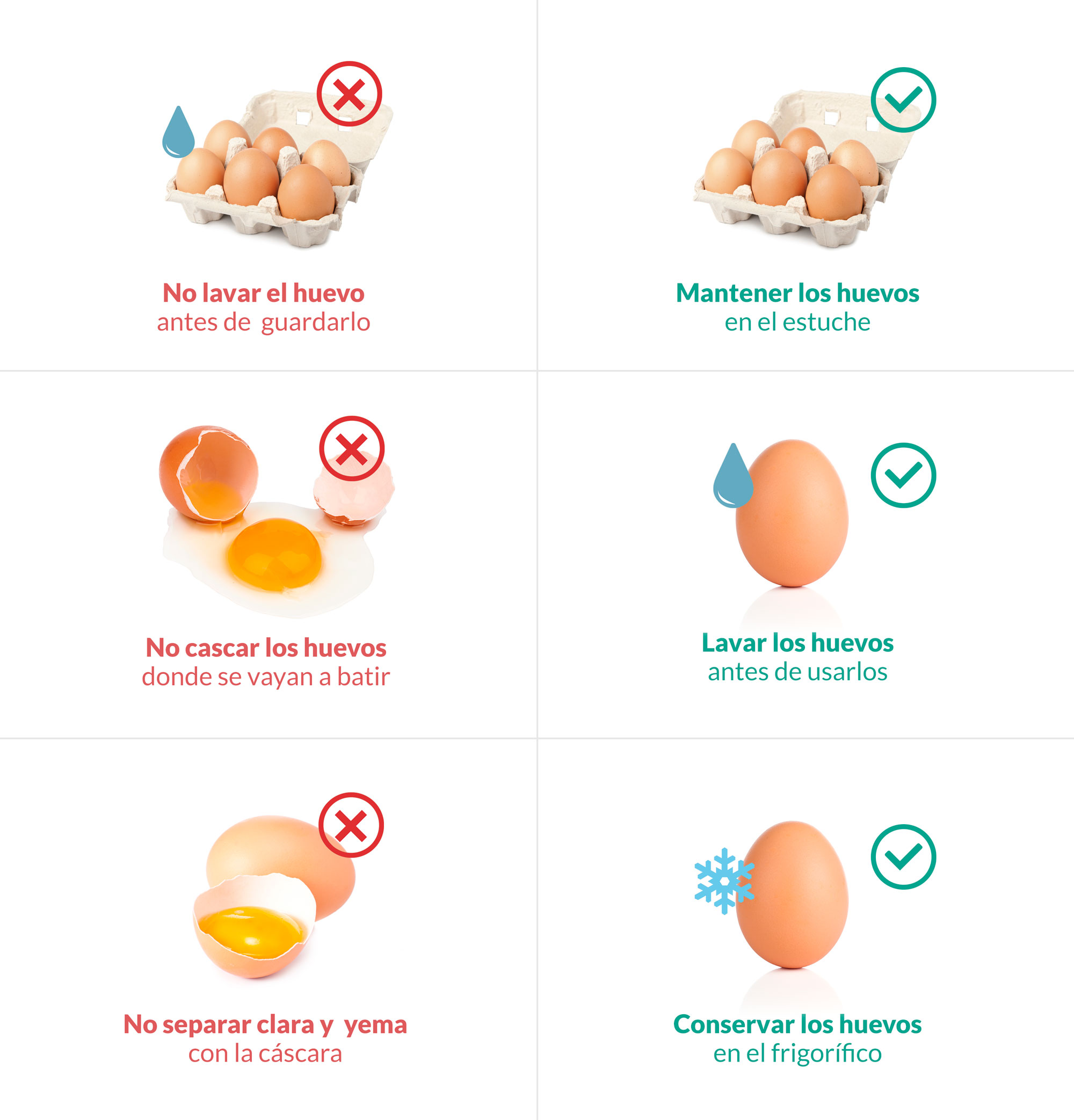
Are they better range eggs that cage?
No, because the feeding of both types of chicken is the same, changing only the type of farming.
What is the difference between cage egg, an egg, poultry and one green?
The egg itself is the same. In the first system the hens kept in cages and not in the others. The organic eggs are the only ones with a different type of feed (organic feed).
How many eggs can you consume a week?
For a child, a person of small or medium size, or inactive, may be appropriate consumption of 3-4 eggs a week, while a large person, or physically active may consume up to 7 eggs a week.
How Digestive Is the egg?
The egg can be eaten at any time. The more or less easily to digest it often depends on their preparation. The boiled egg is digested better than fried and is not recommended consumption of raw egg. It is not certain the expression “the egg is bad for your liver.”
What is better the brown egg or the white one?
The egg color is determined by the breed of hen that lies it and has nothing to do with quality, nutritional value or taste. There is no nutritional differences between them.
How should I store an egg?
An egg is kept fresh and edible if kept in the refrigerator after purchase, preventing it from absorbing odours and flavours from other foods.
May I wash the eggs?
Do not wash eggs unless you are going to consume them immediately. Since the shell is porous, it can absorb inside the water and substances attached to the shell
How do we know that an egg is fresh?
When an egg is fresh bark shows two distinct areas in the white: a more dense and a more fluid that surrounds him, but without becoming liquid. Both the yolk and the white are well contained, with no scatter. Check and follow the freshness date.
Are edible the eggs with red spots or ‘clouds’ in the clear?
The red spots that can sometimes appear in the yolk do not matter, and can be removed with the tip of a clean knife. White can also have sometimes “clouds”, which – as the red spots – do not alter the egg quality and are also clear signs of freshness.
Is the egg responsible for salmonellosis?
Salmonellosis usually occurs due to improper handling of both eggs and other foods. To avoid, follow these tips:
• Always buy eggs with shell intact and clean
• Keep hands and utensils clean.
• Proper cooking of food destroys any contaminating bacteria.
• Store food, fresh or cooked, in the refrigerator, especially in summer.
How safe are eggs from the health point of view?
The egg is a healthy food; just have to avoid contamination by improper handling or storage. A fresh egg, clean, from healthy hens, collected and handled under hygienic conditions of security, does not have salmonella in it.
Does eating eggs raises cholesterol?
The egg is not responsible for the level of cholesterol in the blood. This depends, among other factors, on genetic predisposition and saturated fats included in the diet.
The egg contains about 410 mg of cholesterol per 100 g of whole egg. Since the early sixties it has been recommended to limit the consumption of eggs in order to reduce its concentration in blood and reduce the risk of cardiovascular disease, but recommendations on limiting egg consumption have now been relaxed by all heart and health advisory groups.
Do not forget that cholesterol is essential for our body. A portion of the amount needed is synthesized in our body and the rest, a not high amount, from food.
In recent years there have been numerous studies on the relationship between egg consumption and increased blood cholesterol and cardiovascular risk, the main conclusions are:
– The largest epidemiological study (with 118,000 men and women) showed that consumption of up to one egg per day had no significant impact on cardiovascular disease mortality (Hu et al., 1999)
– Foods high in cholesterol, but with a relatively low content of saturated fat, the case of the eggs, have very little effect on blood levels of LDL-cholesterol (Krauss et al., 2000)
– To reduce cardiovascular risk is more important to reduce consumption of fats, especially saturated fat, than the cholesterol content of the diet (McNamara, 2000)
Thus we can say, according to current knowledge, a reasonable consumption of eggs (about one egg per adult per day) does not directly affect the arterial walls and therefore the risks of the above consumption are practically nonexistent.
Repeatedly stated that eggs are bad for the liver. The truth is that egg lipids stimulate the functioning of the gallbladder, and are only harmful in the case of developing gallstones or spasms.
Finally note that the egg yolk has multiple uses in the food industry for its emulsifying capacity and its colorant pigments, that give the yolk its colour.
If you have problems with high cholesterol you should ask your doctor.
1. Freshness date
By the phrase “best before” followed by the day (01 to 31) and month (01 to 12) and year (optional)
The freshness date for fresh eggs is 28 days after laying.
2. Storage tips
Indicating that advises: “After your purchase, keep refrigerated”
3. Number of eggs per pack
4. Name or business name and address of company that have packed the eggs.
5. According to weight classes
* Extra large or XL: over 73 g.
* Large, or L: between 63 and 73 g.
* Medium or M: between 53 and 63 g.
* Small or S: less than 53 g.
6. Quality class (A)
Indicates that the eggs are fresh
7. Indication of the type of farming
Eggs from caged hens
8. Number sorting center
Nine-digit code: 111400277 (also ES1400277)
It is the number of official approval given by the Ministry of Health Authorities to the Grading and Packing Station.
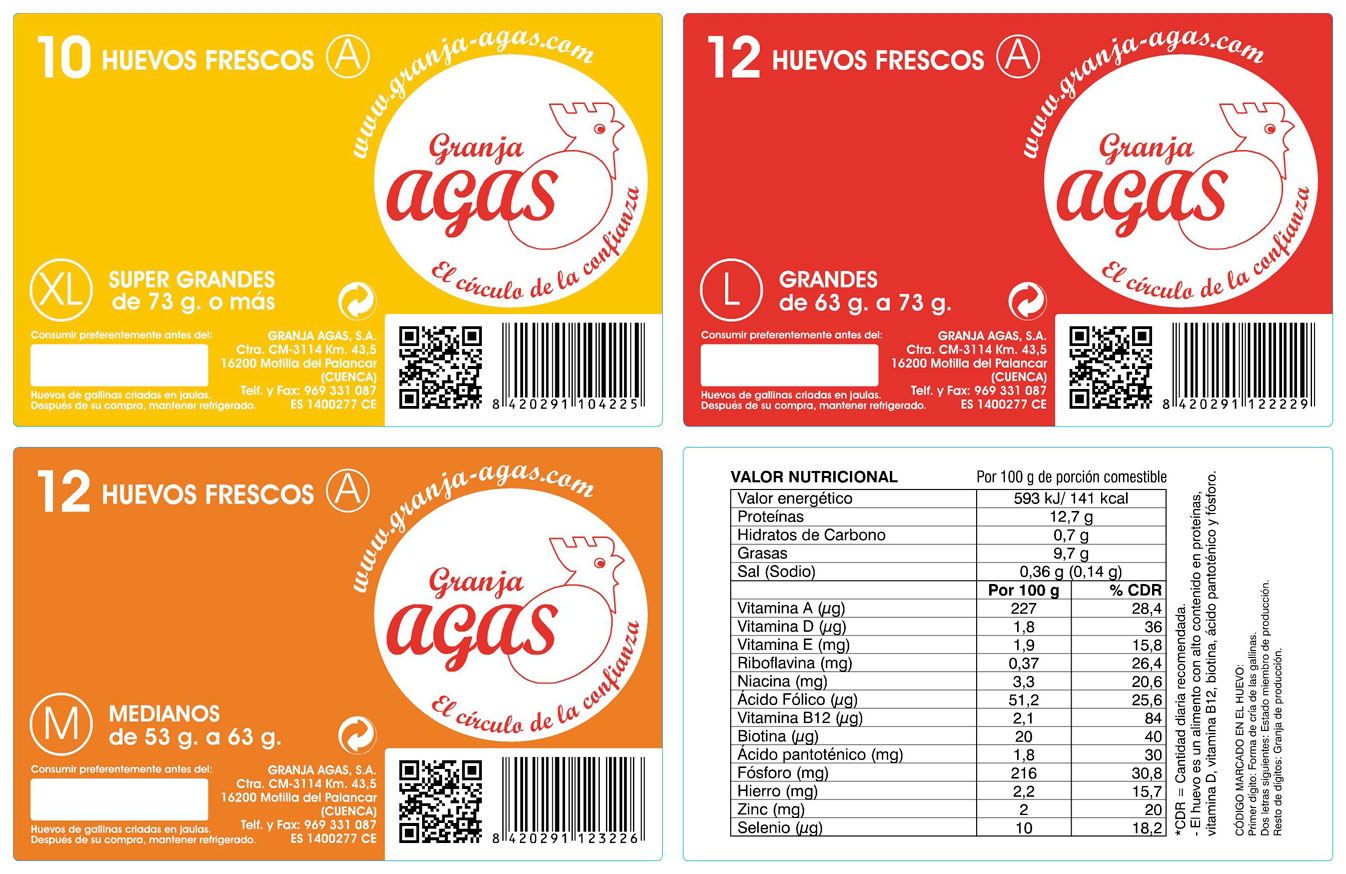
The eggs are also printed on the shell with the farm code and the best before date (optional) for track and tracing purposes

Contact us
- CM-3114, Km. 43,500
16200 Motilla del Palancar - Cuenca - Telephone: 969 33 10 87
- E-mail: info@granja-agas.com

